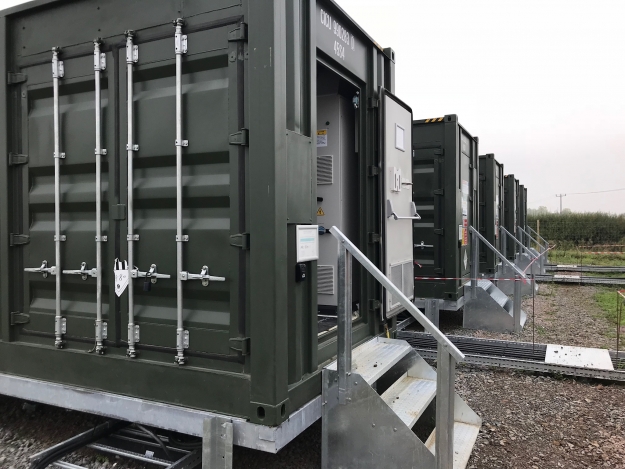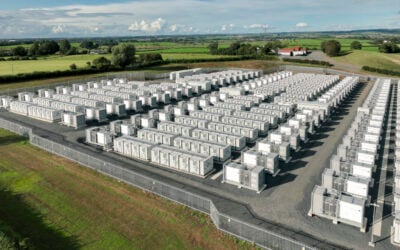
UK renewables and battery developer Anesco has warned that the looming de-rating of battery storage in the Capacity Market risks scaring investors away from the technology.
Earlier this year Anesco completed the 10MW Clay Hill Solar Farm, which is the UK’s first subsidy-free solar project. Built alongside 6MW worth of battery storage, the site is hoping to have pre-qualified to participate in the forthcoming Capacity Market auction alongside other battery storage assets.
But the government’s consultation on the proposed de-rating of batteries stands to reduce the levels of support available for battery storage, particularly those of short duration lithium-ion batteries. These changes have been designed to more closely represent the expected duration of batteries in a stress event with all generation technologies currently afforded the same banding, regardless of their duration capability.
The consultation was released in July and could still apply to the forthcoming Capacity Market auctions, although this is considered unlikely. But despite a senior policy advisor at BEIS (the UK government’s Department for Business, Energy & Industrial Strategy), telling an industry event last week that a decision was imminent, there has yet to be any clarity on the issue despite the pre-qualification results being expected within days.
Try Premium for just $1
- Full premium access for the first month at only $1
- Converts to an annual rate after 30 days unless cancelled
- Cancel anytime during the trial period
Premium Benefits
- Expert industry analysis and interviews
- Digital access to PV Tech Power journal
- Exclusive event discounts
Or get the full Premium subscription right away
Or continue reading this article for free
Anesco responded last month by stating that it was investigating the potential to use longer-lasting flow batteries to head off the changes, however chairman Steve Shine has told our UK sister site Clean Energy News that he fears the overhaul could have a more significant impact on investor confidence.
“It’s a negative move at this particular time… it’s not the revenue that investors want, it’s the ability to raise debt and 15-year contracts are vital,” Shine said, adding that one potential remedy would be for the changes to be phased in.
Shine has warned that not only could enforcing the changes wholesale dampen the investment appetite for the technology, but could result in some assets becoming stranded.
“I think there needs to be more joined-up thinking between (transmission system operator) National Grid and BEIS,” he said.





